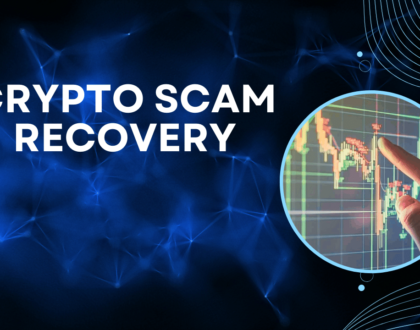
Famous Scams
Some Famous Scams: A Complete Overview
Famous Scams: Scams have been part of human history for so long as humans have sought to get something for nothing. The techniques may evolve in the present-day built-interconnected world, but the essence will be the same—deception for private gain.
Introduction:
In this digital era, where everything is easily accessible, new and complex scams have additionally emerged. The first step is to know these scams because it will save you and your assets. Whether you’re shopping for a product online, have a small business, work remotely, or invest in cryptocurrencies, if you stay in form, you can save yourself from these fraudulent activities.
1. Classic Scams:
The Ponzi Scheme
Named after Charles Ponzi, who orchestrated built-only one of the largest integrated frauds built in the early 20th century, the Ponzi scheme guarantees high returns with little to no danger. Using cash from fresh investors to pay previous ones, the illusion of a profitable enterprise is maintained —until it collapses below its weight.
Key Lessons
- Be skeptical of investments that assure high returns with no chance.
- Verify the investment authority via a couple of dependable sources.
- understand how the investments generate returns.
The Nigerian Prince Scam
The “Nigerian Prince” scam is a type of fraud in which the scammer claims to be an overseas dignitary needing assistance to transfer a massive sum of money. In return, they promise hefty praise. However, the victim is requested to pay numerous costs upfront, with the promise of compensation that does not come.
Key Lessons
- Be wary of unsolicited emails which promise large sums of cash.
- Don’t share private and economic records with unknown agencies.
- Report suspicious communications to the government.
2. Modern-day virtual scams
Phishing Attacks
It consists of fraudulent attempts to attain private information, like usernames, passwords, and credit card information, by distinguishing an honest entity in an electronic conversation. These assaults are frequently carried out through email, social media, or fake websites.
Key Lessons
- Before clicking, check the hyperlink; hover over the links to see the URL.
- Investigate the sender’s email address and search for signs of spoofing.
- Use many factors authentication to feature further layer of safety.
Ransomware
Ransomware is malicious software designed to restrict permission to a laptop system until cash is paid. It often spreads through phishing emails, exploit kits, or malicious downloads.
Key Lessons
- Frequently back up all your data and store it offline.
- Hold your software and antivirus programs updated.
- Be careful of unsolicited emails and downloads.
3. Business Scams
Fake Invoices
Scammers transfer fake invoices to businesses, hoping they will pay without verifying their legitimacy. These invoices frequently look very good and may easily slip through if the business lacks stringent accounting controls.
Key Lessons
- Implement a verification system for all invoices.
- Educate employees to understand and record suspicious invoices.
- Use accounting software programs with fraud detection capabilities.
Business Email Compromise
BEC scams include getting unauthorized entry to email accounts to start unauthorized fund transfers.
Key Lessons
- Train your employees about BEC scams and establish verification protocols.
- Use email authentication technologies like DMARC, DKIM, and SPF.
- Always check your account to save yourself from such kind of activity.
4. Cryptocurrency Scams
False initial coin offerings
ICOs are a famous way for cryptocurrency startups to raise funds. However, scammers create false ICOs to trap investors into funding non-existent projects and then profit from the funds.
Key Lessons
- Very wellstudies any ICO before investing.
- Verify the challenge’s whitepaper, teammembers, and advisors.
- Be cautiousof ICOs that offerassured returns.
Bitcoin Phishing and Ponzi Schemes
Bitcoin phishing scams consist of fraudulent websites or emails that trick victims into revealing their private keys to their wallets. Bitcoin Ponzi schemes promise high returns on Bitcoin investments but collapse as new investors dry up.
Key Lessons
- Use hardwarewallets or relied onsoftware program wallets.
- simplestway to enter your wallet is via relaxed, proven websites.
- Be skeptical of any investment promising highreturns with little chance.
5. Protective Measures
Advices for consumers
- Teach yourselfabout common scams.
- Use solid passwords for onlineaccounts.
- Checkfinancial statements often for unauthorized transactions.
Advice for Small enterprise owners
- Apply robustaccounting and auditing controls.
- Teach your employeesto know phishing and BEC scams.
- put money into cybersecurity measures.
Advices for virtual Nomads
- Use VPNs while reaching public wifi networks.
- Hire two-factor authentication for online debts.
- Keep your devicesand software program updated with modern-day security patches.
Advice for Bitcoin Investors
- Research very well before investing in any cryptocurrency project.
- Use cozy wallets and allowtwo-factor authentication.
- Staytuned to modern-day developments and threats in the crypto area.
Conclusion
Scams have evolved, but the basic standards of deception remain the same. By staying tuned and vigilant, you can protect yourself, your enterprise, and your investments from becoming victims of these fraudulent schemes. Knowledge and proactive measures are your best defenses against scams.
Whether you’re a consumer, a small business owner, a digital nomad, or a Bitcoin investor, take the time to teach yourself about those famous scams and implement the lessons you learned to save yourself from crime.



